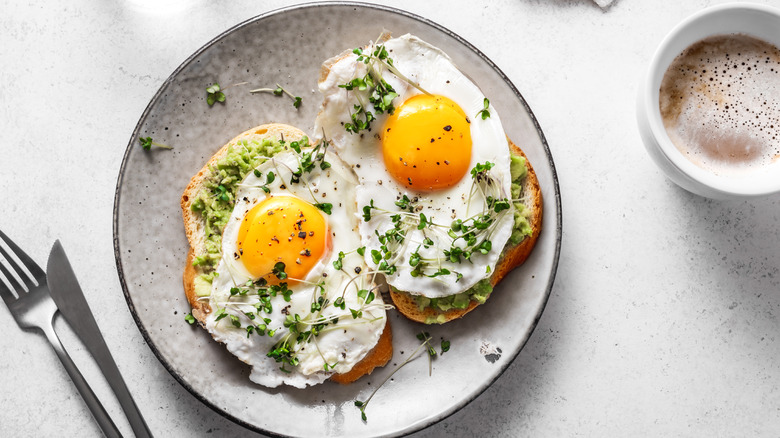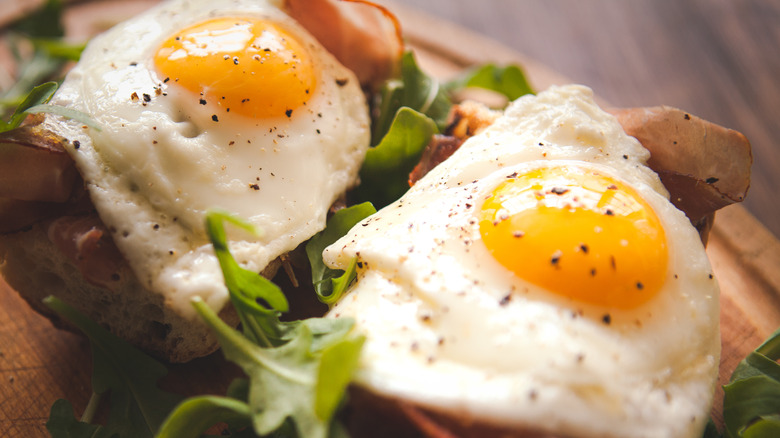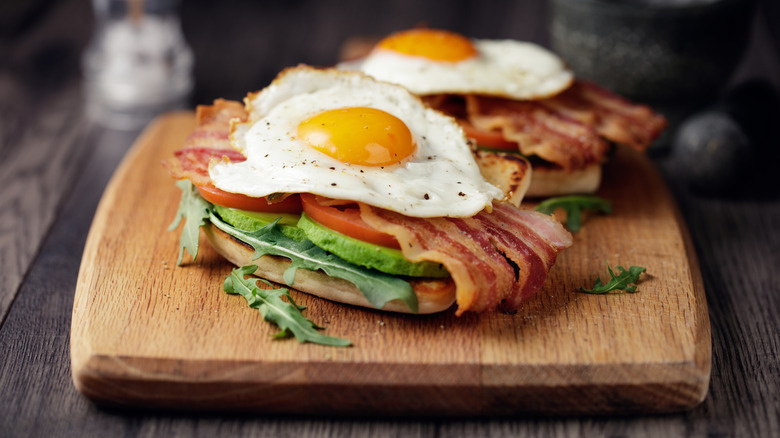The Easy Step To Ensure Your Egg Yolk Doesn't Crack When Frying
The perfect fried egg means a perfectly-intact egg yolk. And nothing is worse than cracking an egg right into a nice hot frying pan only for the yolk to break in the process. But if you're looking for an easy way to ensure no such thing happens, just crack each egg into a small bowl prior to adding them to your frying pan. This way, you can make sure there are no broken yolks, and if the yolk does break, you can toss it and replace it with a new egg without having to fish it out of the hot pan. If the yolk stays intact, then you just slide the egg from the bowl into your hot pan.
Of course, if you're going for presentation, the perfect yolk matters. But that doesn't mean you have to waste the egg (or eggs) that didn't work out. Keep them to the side while you fry those better-looking ones, then when you're done cooking, scramble any eggs together and cook them for tomorrow's breakfast.
When making eggs, a small bowl is your friend
A ramekin or small bowl isn't just a good way to ensure a perfect yolk. It can also give you a chance to inspect the egg for any other imperfections before you cook it. Some eggs have blood spots, which occur when blood vessels rupture. While these eggs are perfectly safe to eat, it could throw off the eggs' appearance. Also, if you're cracking the egg right into the pan, you risk some small pieces of shell going with it.
By using the ramekin as a line of defense, you can check for any shell pieces or discoloration before the egg gets cooked. The ramekin will also help you place the egg directly where you want it in the pan; since shells don't always crack evenly, breaking it directly into the pan could send the egg in the wrong direction, but the ramekin offers more control — another quick and easy egg hack.
Tips for the perfect fried egg
A nice-looking egg yolk only scratches the surface. There are other ways to ensure your fried eggs are perfect; pan placement is another one. If you're cooking multiple eggs in one pan, make sure they are spread out evenly and are equidistant to the flame. Otherwise, some eggs will cook quicker than others, leading to browning or burning.
If you're preparing eggs over easy, you'll want to heat the pan on low for a couple minutes before adding the eggs; flip the eggs after no more than 15 seconds, where they'll cook for about another minute. Cook the eggs for two minutes if you want them over medium and no more than three minutes for perfect, over hard eggs.
No matter how you prefer your eggs, you never want to turn the heat too high. Eggs brown easily and quickly, so cooking them on low to medium heat helps to better control their doneness. And finally, understand how your pan works. If the bottom of the pan isn't perfectly flush with the burner, keep this in mind when you cook eggs; you might want to remove the pan from the heat just until the eggs set so that albumen doesn't travel, ruining the egg's perfect shape.


